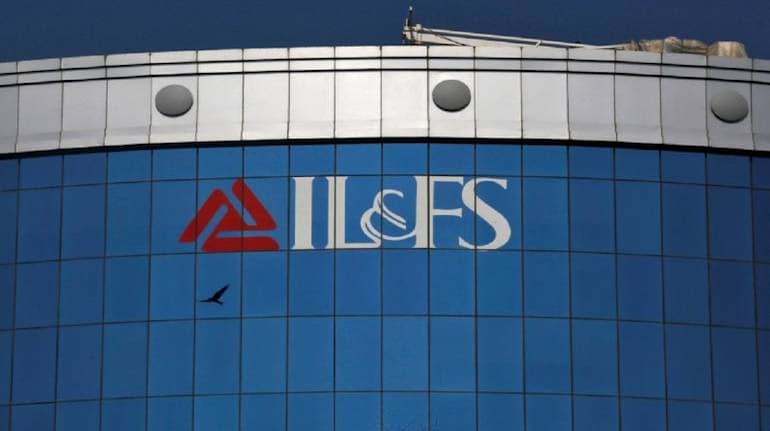



Subir Roy
Several episodes in the financial sector, the latest being the default by the Infrastructure Leasing and Financial Services (IL&FS), point to a flawed mindset on the part of those running the show, which has done no good to the economic system.
IL&FS is a quasi-sovereign, an organisation in which the government does not technically own a majority stake, but is controlled by the government in practice. The organisation has enjoyed the upside of this over the years by being able to issue AAA-rated paper without any of its stakeholders caring to raise questions about its opaque system of governance.
Now that the downside of being state-controlled -- neglect of scrutiny of governance processes -- has come home to roost through a default, the government does not want to know IL&FS. In over a week since the tremor in the stock market occurred after the discounted sale of Dewan Housing Finance paper -- seen to flow from the IL&FS default -- IL&FS' annual general meeting has come and gone but there is still no clarity on who will fund a bailout.
The point is: it doesn't matter what the fine print says. If the market and everyone else sees an entity as government-owned, the consequence of the government seeking to take shelter behind the fine print and not take the initiative for a bailout will be market uncertainty and tumult. Over the longer term, the cost of this in terms of falling indices and loss of investor confidence, at a time when the economy needs to shift from consumption-driven to investment-driven growth, will be far greater than the cost of the bailout.
Go back a bit and take the case of the proposed merger of three public sector banks — Bank of Baroda (BoB), Vijaya Bank and Dena Bank. Its aim was to take care of ailing Dena Bank, which had been put under 'Prompt Corrective Action' (PCA) by the Reserve Bank of India (RBI). But the merger did nothing to boost market sentiment.
Few saw a great upside in the government having a larger bank and succeeding in reducing the number of banks under the PCA by one. Instead, the public's focus was on the combined entity emerging weaker than what the two stronger banks would have been on their own. Dena Bank would bring to the table a weak loan book without any significant positives.
Or take the case of the government deciding to have Life Insurance Corporation (LIC) take over IDBI Bank, another lender under the PCA. Here too, the market saw no systemic benefit flowing from having one less weak bank.
Then why did the finance ministry go in for these two acts? It did not want to foot a hefty recapitalisation bill for them and passed the buck onto BoB, Vijaya Bank and LIC.
The common thread running through these government actions is the finance ministry refusing to pick up the tab for cleaning up a corner of the system in order to not blot its copybook by breaching its fiscal deficit target. If there were a holy cow in the finance ministry's world view then it is to stand by its own fiscal deficit guidance. If the downside of this is increasing uncertainty and instability in the markets, so be it.
The primary goal of the system's keepers, the government and the RBI, is to maintain macroeconomic stability, which consists of several elements -- fiscal stability, inflation control and a stable external sector with a realistic and reasonably steady exchange rate.
The successful pursuit of macroeconomic stability over a decade and more has seen India record high growth, a declining current account deficit and rising reserves. However, you cannot reap the benefits of macroeconomic stability in terms of growth if news of ill health in the financial sector spooks markets.
First it was the banks getting into severe bad loan trouble, and now it is IL&FS signalling big trouble for shadow banks. If there is uncertainty and people start sitting on their cash, it will harm growth and you will see macroeconomic stability only under recessionary conditions.
A key reason for why the economic operatives currently manning the government, who are not powerful economic minds who can think out of the box in their own right, are acting the way they are is the absolute sanctity that the International Monetary Fund (IMF) and like-minded multilateral institutions, and the global army of analysts led by bond vigilantes lend to both the fiscal deficit and inflation numbers.
Even if inflation is under control, you cannot loosen the fiscal purse strings, not unless you are an American conservative who switched off his historical concern for the budget deficit as soon as Donald Trump cut taxes for the rich.
The way to go for the finance ministry, unless the finance minister is on sick leave and the prime minister is out on a foreign tour, is to say the following: Sorry, we too messed up the lending business, like our predecessors. The buck stops with us. We will recapitalise banks and their shadow and then look at the far harder task of continuing to build infrastructure by improving the ease of doing business for firms whose promoters have their own skin in the game.
(Subir Roy is a senior journalist and author. Views expressed are personal)
Discover the latest Business News, Sensex, and Nifty updates. Obtain Personal Finance insights, tax queries, and expert opinions on Moneycontrol or download the Moneycontrol App to stay updated!
Find the best of Al News in one place, specially curated for you every weekend.
Stay on top of the latest tech trends and biggest startup news.